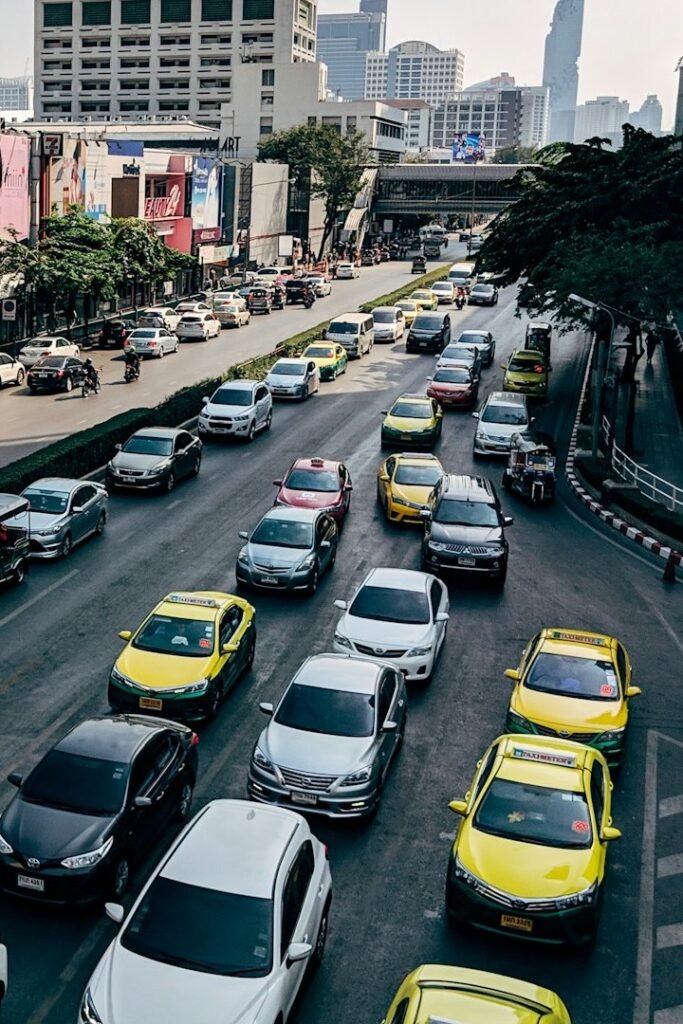Achieving a quieter Bangkok may bring with it some advantages that can significantly enhance the quality of life for its residents.
This is because, it is said that noise pollution can lead to various health issues such as anxiety or stress – the latter of which can even lead to heart disease. So, decreasing noise pollution can help both your physical and mental health. As a consequence, this could perhaps contribute towards reducing the strain on the public healthcare system too.
Busy cities and transportation can naturally bring about noise pollution so it can be difficult to approach reducing the noise in such a lively city – a city that we actually love for its hustle and bustle.
The main causes of noise pollution are said to be: noise from car traffic, noise from aircraft, noise from construction, nightlife, etc. Presumably, different cities and even different parts of each city will have levels of each type of noise pollution that differ to the next part or to the next city. The previously-linked to article is actually a great read on noise pollution’s causes, effects, and what we can do to lessen it. It may be worth a read.

A quieter Bangkok can also enhance productivity levels in a work environment, according to AV Industrial Products. In a relatively silent workspace, employees may potentially concentrate better, leading to improved performance and efficiency. Less background noise could prevent people from being distracted or unable to focus, allowing employees to focus more intently on their work.
In fact, there are is also research on noise and productivity that may be worth a read if you run an office. It appears then that the layout of the office can make a difference as to its noise level. This is less so about outside noise and more so about noise from the office itself.
Another option might be a sort of remote or hybrid work policy which means fewer people are working from the office, which would ideally lead to less noise.
Beyond human health and productivity
The impacts of noise pollution may extend to local wildlife and ecosystems as well. Many species depend on natural soundscapes for communication, navigation, and mating (see National Geographic). High noise levels can disrupt these activities, so there may be adverse effects on wildlife populations as a result. By working towards a quieter Bangkok, we can help preserve the city’s biodiversity and maintain ecological balance.
Noise reduction practices can complement other environmental initiatives, promoting greener transportation options like cycling and walking (e.g. more shaded paths that could encourage people to walk), and encouraging the development of green spaces. Some effects may also improve air quality – and perhaps foster a sense of community among residents.
In essence, the benefits of a quieter Bangkok are multifaceted, offering significant advantages for human health, productivity, wildlife conservation, and sustainable urban living. By prioritizing noise reduction, we can build a more serene, thriving, and balanced city for everyone.
At the same time, some more research may need to be conducted to see what factors really do apply when it comes to noise pollution in Bangkok, if there are any other variables to consider, etc. This could be both scientific research and surveys to see public opinion and interests, such as when it comes to implementing measures to encourage walking over driving to go a short (i.e. walkable) distance.
FAQs
How did you come together to make Quiet Bangkok?
We wanted to give back to this city we love. We already appreciate many of the efforts people have made, whether it’s a restaurant chain owner that organizes food – amongst other things – for communities in need; or an eatery that takes it upon itself to sustainably dispose of people’s recyclable garbage, etc.
We wanted to work on something that we think goes unnoticed, and that is the effects of noise pollution. That’s why we made QuietBangkok.org.
How do you prevent outside noise from coming into your home?
There are a few key ways that you can prevent outside noise from coming inside, such as through double- or triple-glazed windows. You can also look towards soundproofing materials or simply to rearrange your furniture in such a way that you can somehow reduce outside noise, although the efficacy can presumably vary depending on different factors.
I have some tips I want to share about keeping outside noise… outside. How can I share these tips with you?
We appreciate any thoughts you may have that can be useful. Feel free to drop us an email with your tips and we can see if we can post them on this website.
